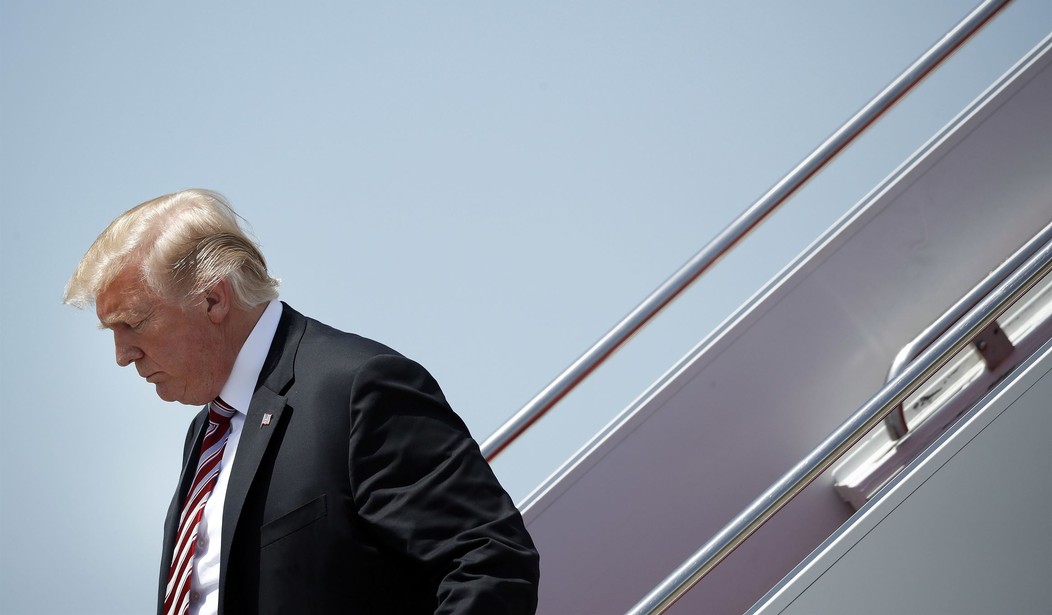Donald Trump’s presidency has been marked by action. He focused on the nation’s problems immediately upon taking office and his economic deregulation and tax reform measures have set America back on track to prosperity and job creation.
Now he is addressing the important task of advancing work over welfare and opportunity over poverty. On April 10th, the president issued an executive order to reverse the Obama-era promotion of dependence as a way of life and instead direct government aid to those most in need.
America is a generous country full of charitable people. Helping those in need is one of the most obvious outworkings of the Christian faith and those who practice genuine compassion know it transforms the giver as well as the receiver.
But over the past half century, government has taken over as the dominate provider for America’s poor. Clever politicians knew the promises of the New Deal and Great Society would win them votes. Their successors continued to profit by making dependence on government socially acceptable, and today anyone who suggests otherwise is cast as a racist Scrooge.
Ronald Reagan had it right when he observed in 1982 that “the war on poverty created a great new upper-middle class of bureaucrats that found they had a fine career as long as they could keep enough needy people there to justify their existence.”
The Welfare Swamp is nurtured by the income redistributionists who rely on our complex tax code and myriad income transfer programs to hook as many Americans as possible on government goodies. Whether the munificence comes as corporate or social welfare, those who write the checks come from both parties.
Recommended
While the constituencies for spending vastly outnumber the voices for responsible and limited government, welfare reform has occurred before. Governor Reagan began the process in the early 1970’s with my husband, Bob Carleson, to stop California’s welfare spending from driving the state into bankruptcy.
That first reform directed scarce resources to the state’s most needy, increased the State’s discretion over eligibility, and required able-bodied recipients to seek work. Its essential elements provided the model for the 1996 Welfare Reform that broke the cycle of poverty for millions of Americans.
President Obama did all he could to stymy and reverse the ’96 reform, and here, as elsewhere, President Trump must now clean up the mess. And here he seems to be taking his cue from Ronald Reagan.
The straight forward title of the president’s executive order, “Reducing Poverty in America by Promoting Opportunity and Economic Mobility” signals that he understands the challenge and the solution. He is for independence, not dependence.
The executive order makes clear that Washington’s role “is to clear paths to self-sufficiency.” Officials are to “examine Federal policies and programs to ensure that they are consistent with principles that are central to the American spirit—work, free enterprise, and safeguarding human and economic resources.” Programs which fail to do so are to be fixed or ended. (The term “ended” is rarely used in Washington circles, but the 1996 Welfare Reform, for the first time ever, repealed the crown jewel of the Great Society by replacing the ever-expanding Aid to Families with Dependent Children program with flexibility and finite funding to the states.)
The executive order instructs actions be taken to: strengthen and increase work requirements for benefits, assist vulnerable populations in finding employment, increase flexibility and accountability for state, local, and tribal governments, streamline government bureaucracy, target benefits to those in greatest need, consolidate wasteful and duplicative programs, spread information on successes and failures, and encourage private and community solutions.
This is an ambitious agenda for any administration but the president’s incentives already enacted to improve investment and entrepreneurship are yielding strong economic growth - growth that will provide welfare recipients with the employment opportunities they need.
Work requirements for federal programs are to be strengthened and increased “in order to move people to independence.” Moreover, the administration intends to review and improve workforce development programs to help people find and succeed at work.
The order also “allow[s] local entities to develop and implement programs and strategies that are best for their respective communities.” Washington really does not know best - that was proven in 1996. The administration wants to build on that earlier reform to provide greater flexibility for governments closer to local conditions and peoples “to design and implement programs that better allocate limited resources to meet different community needs.”
And finally, there would be enhanced accountability for those spending federal—meaning the taxpayers’—money. Agencies would be expected to reduce fraud and waste, enforce laws barring aliens from collecting benefits, and “establish clear metrics that measure outcomes.” It will be up to those organizations to “increase program integrity.”
The Carleson Center for Welfare Reform identified 157 specific means-tested programs existing in 2012 from health care, to food, to housing, to employment and training, to free legal services and more. Last year federal welfare outlays were $700 billion; toss in state and local programs and the total exceeds a trillion dollars a year.
A well-functioning society needs for every able-bodied individual to earn their way and for limited resources go to the most vulnerable among us. So, we must restructure our welfare system to protect the truly needy and taxpayers alike. While the Swamp players – the bureaucrats, the poverty activists, the tax-and-spend politicians, and those who think the rest of us owe them a living—will put up a ferocious resistance, I have no doubt that President Trump is up to the challenge. He understands what’s wrong and how to fix it.

























Join the conversation as a VIP Member